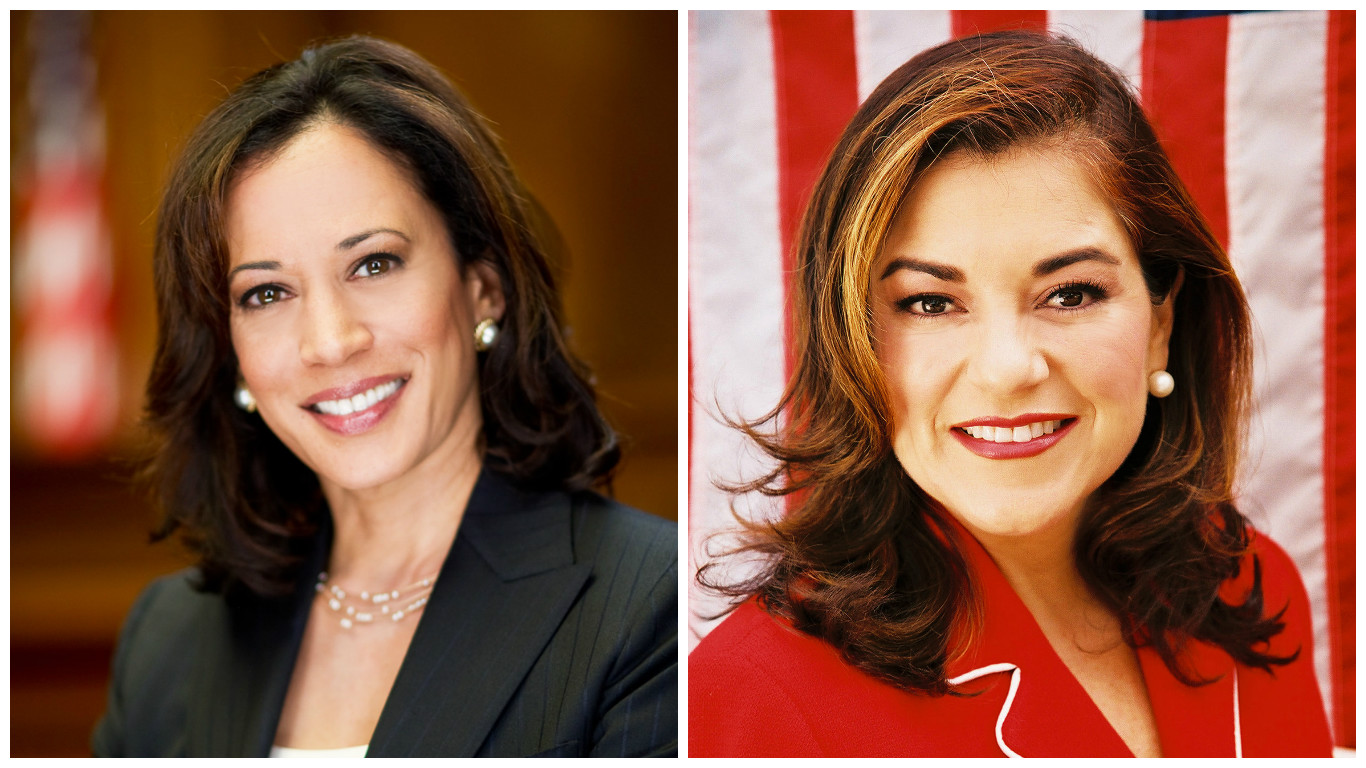
photo courtesy of Wikimedia Commons
Nineteen percent to forty percent. This was the gap between Senate candidates Loretta Sanchez and Kamala Harris in California’s Primary Election held on June 7. With the general election on the horizon, polls in early September still suggest a gap of a similar magnitude; a KABC/SurveyUSA poll conducted from September 8-11 suggested a lead of 15 points for Harris, while a Field Poll composed from September 7-12 indicated that her lead was as extensive as 22 points.
While Harris may be running a successful campaign, however, the extent of her lead has largely been created by the misdoings of her opponent.
Foremost, Sanchez has been criticized for her discriminatory comments about race and religion. In December of last year, during an interview about the terrorist attack in San Bernardino, she declared that “anywhere between 5% and 20% [of Muslims]… have a desire for a caliphate and to institute that in any way possible, and in particular go after what they consider Western norms—our way of life.”
After deprecating Muslims as malevolent, Sanchez was thereafter criticized by immigrant civil rights groups like The California Immigrant Policy Center in Oakland which demanded an apology from the candidate. Sanchez later released a statement in response to the criticism in which she affirmed; “I strongly support the Muslim community in America and believe that the overwhelming majority of Muslims do not support terrorism or ISIS.” Despite her statement, Sanchez still lost the support of immigrant civil rights groups and perhaps some voters as well.
Sanchez has also been criticized for indicating that President Obama’s endorsement of Kamala Harris was in part based on race. In an interview on Univision-19 in late July, Sanchez suggested that a contributing factor to Harris’ endorsement from Obama was that “she is African American. He is, too.” Kamala Harris called for Sanchez to apologize to President Obama, to which Sanchez responded with a denial of the implications of her statement.
Sanchez’s offensive remarks and “unprogressive” comments are particularly damaging due to the demographic of voters she is targeting for the election.
Looking to be the first Latina Senator in history, Sanchez seeks the Latino vote for November. She emphasizes her Latino heritage by interviewing frequently on Spanish-speaking talk shows and referencing her immigrant parents in campaign speeches. Making racially insensitive and discriminatory comments is therefore even more damaging as Sanchez looks for the support of minority voters. Her denouncement by immigrant civil rights groups for her comments about Islam, especially, will damage her campaign that has relied heavily on immigrant voters.
Moreover, Sanchez has yet to capture the attention of another audience she has been targeting, Republicans. Voting in favor of shielding gun manufactures, combatting government regulations on for-profit colleges, and emphasizing national security on the Armed Services and Homeland Security Committees, Sanchez stands further to the right than her opponent.
Sanchez’s more conservative policy positions and her willingness to work across the aisle have already gained her the backing of a myriad of Republican leaders, including former Los Angeles mayor Richard Riordan and Republican Representative Darrell Issa.
However, despite winning the endorsement of Republican leaders and receiving funding from California’s New Frontier, a conservative super PAC, Sanchez has not won the approval of Republican voters themselves.
The Field Poll conducted from September 7-12 showed that just 24% of California’s Republicans have a favorable view of Sanchez, only slightly higher than the 16% that have a positive view of Harris. An even smaller percentage of Republicans said they would actually vote for Sanchez, at 20%, with the majority of Republican voters remaining undecided or saying that they will not vote for either candidate.
Evidently, Republicans are not particularly motivated to support either Democratic candidate despite Sanchez’s efforts to win their approval. Without the support of Republicans, Sanchez will be unable to win the election since more than twice as many Democrats supported Harris in both the recent Field Poll and in the Primary Election.
Even further, Sanchez’s increased emphasis on national security and her endorsements from Republican leaders have actually coincided with a decrease in favorability among Latinos. Polls in June and July suggested that Sanchez was dominating the Latino vote, winning by as many as 15 points according to a LA Times/USC Dornsife poll.
In the recent Field Poll, however, more Latinos actually expressed their intentions to vote for Harris (35%) than for Sanchez (34%). As her main strategic change since the Primary has been her attempts to appeal to Republicans, Sanchez’s decreased popularity among Latinos has most likely been caused by her further identification with the political right. Especially in a year when Donald Trump has been presented as the face of the Republican Party, her association with Republicans will certainly not win her support among many Latinos.
Sanchez’s chances in the upcoming election are shrinking as she fails to win over the two main demographics she has targeted. Left to cry out for the attention of uninterested Republican voters, while trying to maintain the Latino vote at the same time, Loretta Sanchez’s campaign was destined to be an uphill battle from the start.






